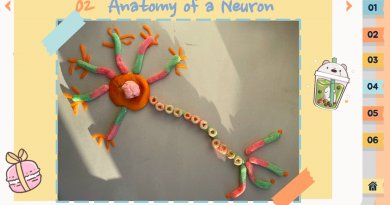Reasonably Enraged: The Defense of Provocation
by Cormac McAdams
mentor: Mario DeCaro, Philosophy; funding source: Fowler Family Summer Scholars Fund
McAdamsReasonably-Enraged_-The-Defense-of-ProvocationIntuitions about human behavior and motivations are pervasive and important in the application of criminal law. A central requirement to establish guilt for many cases is the presence of a ‘guilty mind.’ Yet the legal system has been around for centuries and mind reading has only recently become a vague possibility outside the realm of fantasy or science-fiction[1]. So how exactly have ostensibly objective courts determined the subjective reality of an individual’s mental state? Certainly, the majority of defendants will be incentivized to argue whatever position may result in a more lenient sentence, meaning one’s word alone is not sufficient. Additionally, juries and judges may have different empathetic capacities and may be differentially inclined to imagine the point of view of the accused. Considering the challenges of accurately and confidently ascertaining another human being’s mental state at a previous point of time, is there any hope to establish a just, fair, and effective method for discerning this extremely important component of nearly all criminal cases?
While mind reading may still be unavailable, establishing mental states has largely depended on the intellectual bedrock of Western legal thought: the judicial capacities of the reasonable person. Other factors are also significant and are worth consideration. One’s actions often provide insight into their mental states. Witnesses and narratives provide context that make cases and internal states more scrutable. While a life may be individually experienced, incentives and motivations are often shared and not completely original or unknown to others. A fascinating component, which bears strongly upon the determination of guilty mind and utilizes relied upon intuitions, is the occasion of mitigating factors.
Relevant to this investigation are those mitigating conditions, characteristics, or extenuating circumstances which illuminate and redefine the nature of a supposed crime by asserting something about the defendant. This may be a contention of insanity, the influence of drugs, a seemingly benign medical condition, or temporary disabilities to either self-control or one’s understanding and grasp on reality. All of these scenarios have garnered immense attention and legal debate, especially as developments in psychological, behavioral, and sociological sciences have challenged and problematized basic assumptions about volition, self-control, and even the value of determining guilt. One significant mitigating factor relating to the temporary loss of self-control is demonstrated in the defense of provocation.
The defense of provocation is typically utilized to reduce a criminal homicide to manslaughter, which may carry significantly different sentencing. According to the Model Penal Code—an unofficial but influential guide to criminal law in the U.S.—provocation occurs when homicide is committed “under the influence of extreme mental or emotional disturbance for which there is reasonable explanation or excuse.” The “reasonable” standard will be determined from the “viewpoint of a person in the actor’s situation as he believes them to be” (MPC 210.3(1)(b)). Precedent also states that the provoked act must be directed at the provoker and must be proportional to the instigating circumstances. In other words, this legal standard permits a degree in loss of self-control which could result in homicide but requires the maintenance of enough rational capacity for the provoked to constrain their actions in reference to proportionality and the victim of their erupting rage. The poked bear can swipe back, but only as hard as he was hit, and only against the stick-wielder—not their neighbor.
Many philosophical critiques have
been arrayed against the internal inconsistencies of the defense of
provocation. The dual components of permitting normally inexcusable behavior
due to extreme duress but expecting a degree of constraint that maintains the
‘reasonableness’ standard appear incompatible. Yet, the value of mitigating
factors is not in their perfection, it is in their allowance for nuance that
aids in the administration of justice and equity. A societal decision has been
made, wherein we are willing to acknowledge the impact of great mental,
cognitive, and emotional distress on an individual. A person is more than their
worst action on their worst day. The focus now must be on improving the
dialogue between legal theory and those psychological sciences which have
insight pertaining to the defense of provocation and other mitigating factors
of the ‘guilty mind.’
[1] Thanks, Elon.

Hi Cormac, thank you for a very thought-provoking project. I have also been thinking about the relationship between what society is willing to forgive and the role of intent in evaluating who is worthy of forgiveness. As you mention you are interesting in the relationship between legal theory and psychology, have you looked at the work of Thalia Wheatley and Peter Tse? They are professors in psychology at Dartmouth and have some really interesting work related to determining whether or not humans actually have what we consider “free will.” Could be worth looking at based on what you point out, the role of intent in certain prosecutions.
Hi Cormac, I was really fascinated with the case study you presented, and after reading your post, I learned a lot more about this relationship between the justice system and human emotion. I think you did an amazing job on the poster and blog post, and I am excited to learn more!
Hi Cormac, your project sounds super interesting! It made me think about what the role of police procedurals and courtroom dramas might be in juries determining guilt or innocence – whether having watched a situation on TV similar to the situation at hand influences how juries think about people involved, and where the TV outcome/how the people involved are presented affects how sympathetic juries are.
This project is super interesting! You do a really great job of explaining key terms and concepts. I also think the case study you include really conveys how this works in real life. Your poster prompted me to think about cop/legal dramas on TV, where the defendant is fully innocent or fully guilty…this lacks the nuance it likely should have.